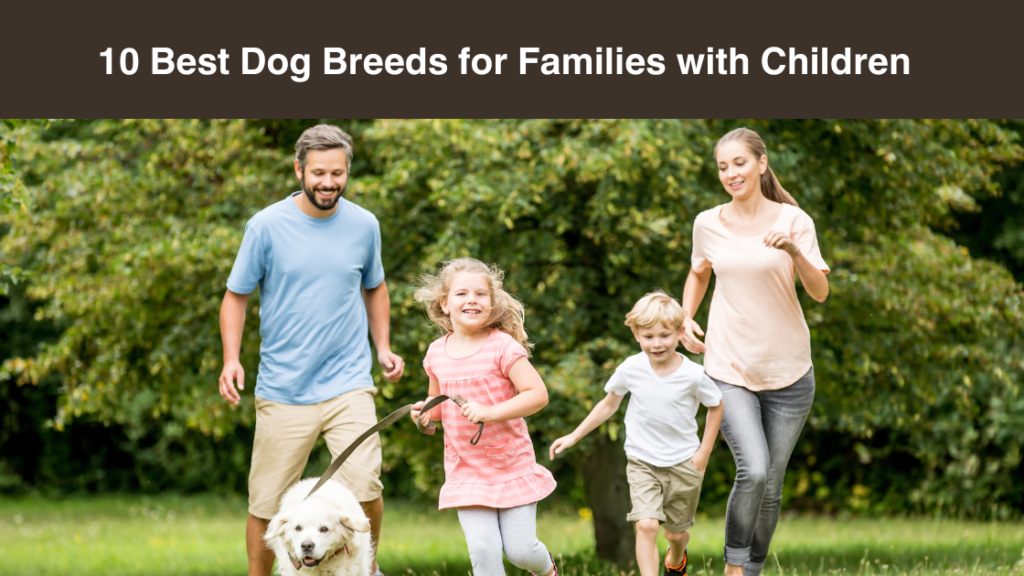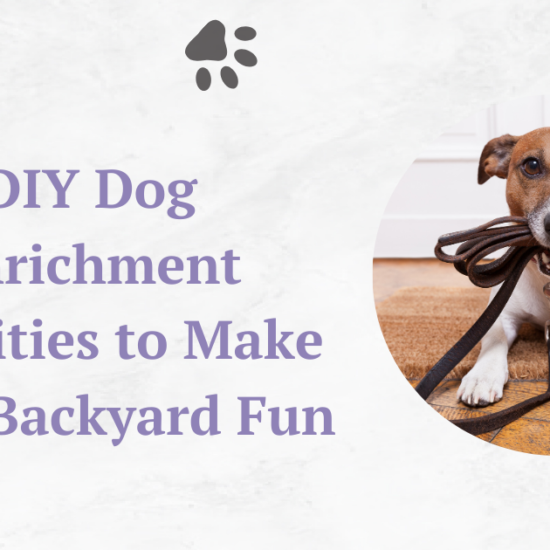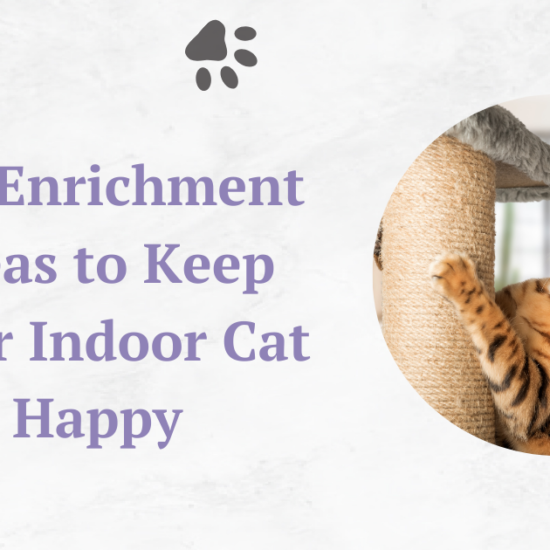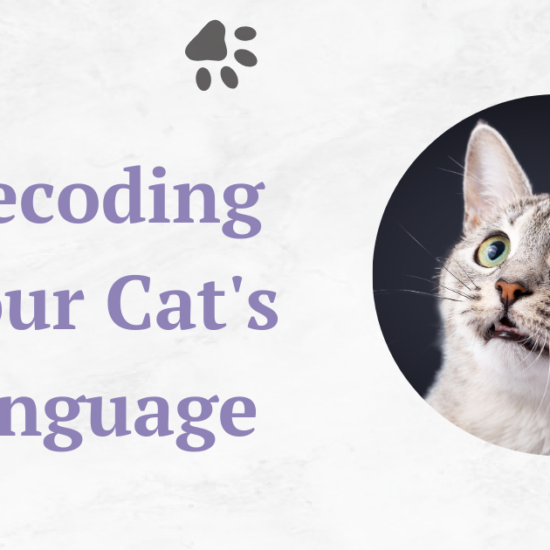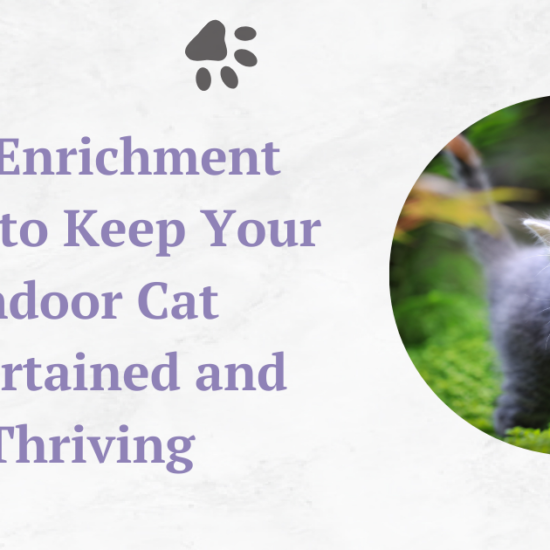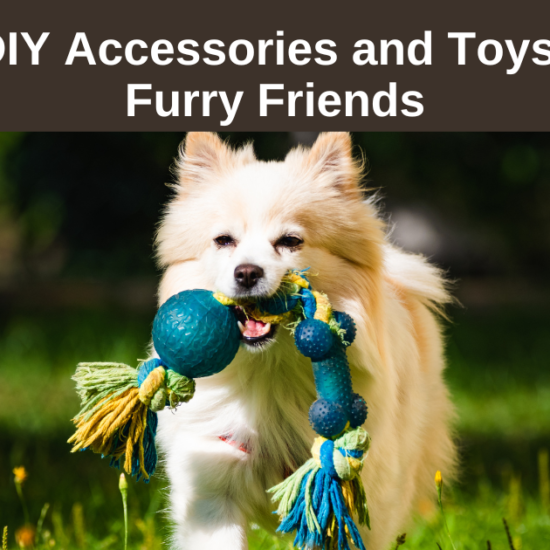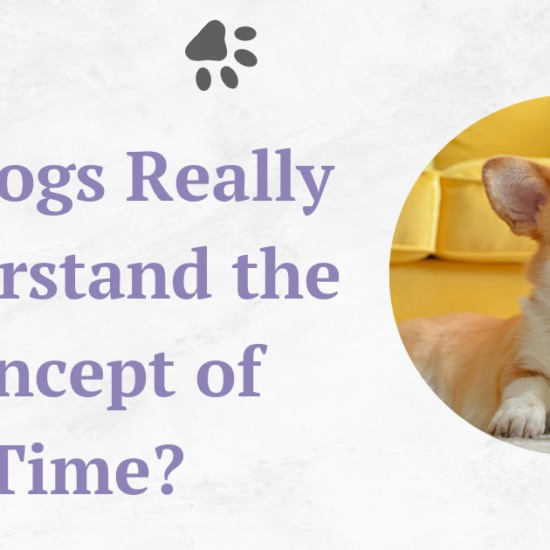Dogs are “man’s best friend” for good reason. They are loyal, affectionate, and bring endless joy and companionship to all ages. For harmonious and safe coexistence, families with children must choose the best family dogs.
Table of Contents
Introduction
Not all dog breeds are suitable for families, especially with kids. This comprehensive guide covers the dog breeds for families with children. We will discuss best family dog breed selection factors and provide detailed profiles of some of the best family dogs.
Selecting Dog Breeds for Families with Children
Especially if you have kids, getting a dog can be very rewarding. Children learn responsibility, empathy, and love from dogs. They are loved companions and family members, not just pets. However, choosing family friendly dog breeds that fit your lifestyle and needs requires careful consideration.
Understanding what makes a dog breed suitable for a family with children is essential before making specific breed recommendations. Size, strength, temperament, energy, trainability, noise and activity tolerance, and allergies are among these factors. Let’s examine each factor further.
6 Factors to Consider While Choosing Family Friendly Dog Breeds
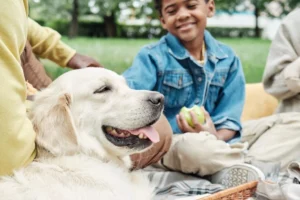
- Size and Strength
Size and strength are crucial when choosing a dog breed for a family with children. Dog size and strength can affect child and dog safety.
Large dogs can accidentally knock over small children during play or be difficult to manage, especially for inexperienced owners. Large breeds can be intimidating, but properly trained and socialized, they’re gentle giants.
The size of smaller breeds is more manageable. Their compact size makes them better for small households and reduces the risk of accidental harm. However, small dogs are delicate and should be handled carefully, especially by young children.
Choose a large or small breed based on your family’s comfort level and children’s ages and sizes. Dogs of all sizes need training, socialization, and supervision to get along with kids.
- Attitude
Dog temperament is important when choosing dog breeds for families with children. You want a friendly, patient, and tolerant breed. Gentle dogs can handle kids’ unpredictable behavior without becoming anxious, fearful, or aggressive.
The following traits indicate a dog’s family suitability:
Friendliness: Family friendly dog breeds should naturally bond with people, including children. They should enjoy playing with family.
Patience: Patience is a virtue, especially with naughty kids. A patient dog can handle rough play and handling without reacting.
Tolerance: A tolerant dog can handle unexpected actions like a child stepping on its tail or pulling on its fur. Family friendly dog breeds have tolerance.
Emotional Stability: Family friendly dog breeds are dogs that are emotionally stable and not easily startled or anxious and are better for active kids.
Find a dog with the right temperament for your family by researching a breed’s temperament and talking to breeders or rescue groups.
- Energy Levels
Dog breed energy is important for families with children. Choose a breed whose energy matches your family’s lifestyle and activity level.
High Energy Dogs
High-energy dogs need lots of exercise and mental stimulation. These dogs love running, fetch, agility, and obedience training. Active families who like outdoor adventures and have time to exercise can benefit from them.
Low Energy Dogs
Low-energy breeds prefer lounging at home and shorter play sessions. These dogs are better for relaxed families or those with busy schedules that limits exercise.
Matching a dog’s energy level to your family’s can make pets and kids happy. Mismatched energy levels can cause dog and family frustration and behavioral issues.
- Trainability
Trainability is another important factor when choosing dog breeds for families with children. A well-trained dog is more likely to obey, behave around children, and fit in with the family.
Intelligent, eager-to-please breeds can learn commands and behaviors quickly. These breeds are easier to train and respond well to positive reinforcement.
Less trainable breeds can be great family pets, but they require more patience, consistency, and time to train. With the right approach, they can be loving and well-behaved despite their slower learning rate.
Family friendly dog breeds are good at learning commands like “sit,” “stay,” “come,” and “leave it.” They also respect boundaries and children’s needs.
- Noise and Activity Tolerance
Some dog breeds tolerate children’s noise and activity. You need a dog that can handle the chaos of a family with kids.
- High-tolerance dogs are less likely to get anxious or stressed when kids play, shout, or just play loudly. They can get along in a busy family.
- Such settings may overwhelm or agitate dogs with low noise and activity tolerance. This can stress the dog and cause behavioral issues or aggression.
Socialization helps dogs adapt to new situations and stimuli. Early exposure to children and different environments can help a dog tolerate family life.
- Allergies
Hypoallergenic or low-shedding dog breeds are essential for allergy-prone families. Although no dog is hypoallergenic, some breeds are better for allergy sufferers due to their low shedding and protein production.
Hair-like coats are common in hypoallergenic breeds. These breeds produce fewer allergens and have less hair that traps and releases them. However heavy-shedding breeds can worsen allergies because their fur traps allergens like pet dander, pollen, and dust.
Since allergies vary, it’s best to spend time with a dog of the chosen breed before bringing one home.
Top 10 Dog Breeds for Families with Children
After discussing the important factors, let’s look at some of the best dog breeds for families with kids:
- Golden Retriever
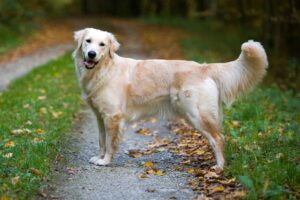
Golden Retrievers are the top family friendly dog breeds. They are gentle and friendly, making them good kids’ pets. Here are some Golden Retriever traits:
- Friendly and Patient: Golden Retrievers are friendly and patient. They like kids and tolerate their antics.
- Medium to Large in Size: Their medium to large size makes them strong enough to handle children without being intimidating.
- Moderately Energetic: Golden Retrievers are moderately active and enjoy indoor and outdoor play.
- Trainable: They are trainable and eager to please, making them good dogs for families to train.
- Noise Tolerance and Activity: Golden Retrievers are good for active households and tolerate noise well.
- Allergies: They shed little and may be suitable for families with mild allergies.
- Labrador

Golden and Labrador Retrievers are known to be top family friendly dog breeds. They resemble Golden Retrievers and are one of the dog breeds for families with children. Here are some of the main character traits of Labradors:
- Social and Friendy: Labs are social and friendly. They love kids and are affectionate.
- Large Size: Medium to large breeds are sturdy but manageable.
- High Energy Levels: Labradors are active and love the outdoors. They can entertain active kids for hours.
- Trainable: Labradors are smart and eager to learn, making them trainable.
- Tolerance for Noise and Activity: They’re great for families because they can handle noise and activity.
- Allergies: Families with allergies may not like Labradors because they shed. However regular grooming can reduce shedding.
- Beagle

Small beagles are friendly and curious. They are ideal for small families with children. Here are some Beagle characteristics:
- Social Temperament: Beagles are social. They play and fit in well with families.
- Small Size: Their smaller size makes them ideal for apartments and small home families.
- Moderate Energy: Beagles have moderate energy and enjoy indoor and outdoor activities. They’re curious and playful.
- Trainability: Smart but stubborn beagles. Early training must be consistent.
- High Tolerance: Beagles are generally tolerant of noise and activity, but they may need patience and training to meet a family’s needs.
- Allergy: Families with allergies may not like beagles because they shed moderately. Shedding can be reduced by grooming.
Note: There might be affiliate links mentioned here. We may receive a commission if you purchase a product through an affiliate link. There is no additional charge for you. Please do your own research before making any online purchases.
- Bulldog
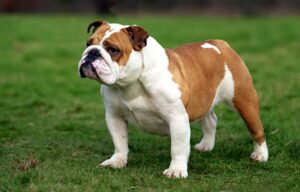
Families with children may not think of bulldogs, but they make great family dogs. Things to know about Bulldogs:
- Calm and Gentle Temperament: Bulldogs are calm and gentle. They tolerate children well.
- Medium Size: Families can easily handle their medium-sized breed.
- Low Energy: Bulldogs are calm and low-energy. They like to lounge around the house, making them good for inactive families.
- Trainability: Bulldogs are smart but stubborn, making training difficult. Positive reinforcement works well for them.
- Noise Tolerant: Bulldogs are calm and noise-tolerant, making them good for families with kids.
- Allergic reactions: Brachycephalic bulldogs may have breathing problems. Families with allergies should also be aware that they shed.
- Poodle

Sizes include Standard, Miniature, and Toy Poodles. Their intelligence and hypoallergenic coats make them popular with families. . Things to know about Poodle:
- Smart and Trainable: Poodles are smart and trainable. They are good family pets and responsive to their owners.
- Variety of Sizes: Poodles come in many sizes to suit your family’s needs.
- High Energy Level: Poodles have moderate to high energy, depending on size. Playtime and outdoor activities please them.
- Trainability: Poodles are among the most trainable dogs. They enjoy learning tricks and excel at obedience training.
- Noise Tolerant: Poodles are generally tolerant of noise and activity, but they may become anxious without enough mental stimulation.
- Allergic Reactions: Due to their low-shedding, curly coat, poodles are hypoallergenic. These are great for allergy-prone families.
- Bichon Frise
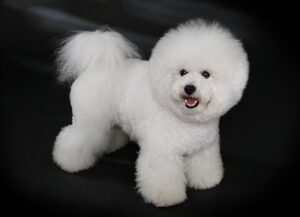
Small Bichon Frise dogs are cheerful and friendly. Families looking for a small, affectionate pet should consider them. Things to know about Bichon Frises:
- Friendly and Playful Temperament: Bichon Frises are friendly, playful, and good with kids. Their disposition is cheerful.
- Small Size: Small breeds are good for small families.
- Moderate Energy Level: Moderately energetic Bichon Frises enjoy indoor and outdoor play.
- Trainability: They are smart and trainable with positive reinforcement. However, consistency matters.
- Noise Tolerant: Bichon Frises are usually tolerant of noise and activity, but like most dogs, they benefit from socialization and training.
- Allergic Reactions: Due to their low shedding and tightly curled coat, Bichon Frises are hypoallergenic.
- Boxer
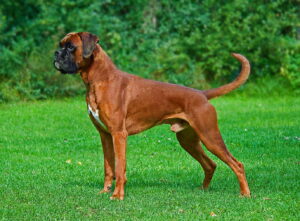
Medium to large boxers are playful and protective. When socialized, they make great family pets but need exercise and training. Things to know about Boxers:
- Affectionate and Loyal Temperament: Boxers are affectionate and loyal. The “gentle giants” are good with kids.
- Medium to Large Size: Medium to large breeds are strong and sturdy, which is good for active families.
- High Energy: Boxers need lots of exercise and mental stimulation. They enjoy running and playing.
- Trainability: They are smart but stubborn. Positive reinforcement training must be consistent.
- Less Noise Tolerant: Boxers are good with kids, but early socialization is needed to make them comfortable with noise and activity.
- Allergic Reactions: Boxers shed moderately and are not hypoallergenic. Families with allergies should expect allergens.
- Shih Tzu
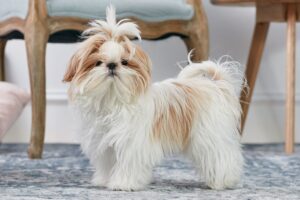
Shih Tzus are friendly and outgoing. They are ideal for families with children, especially those in apartments or with limited space. Here are some Shih Tzu traits:
- Affectionate Temperament: Shih Tzus is affectionate, friendly, and good with kids. They enjoy family life.
- Small Size: Small breeds are good for small families.
- Moderate Energy Level: Shih Tzus has moderate energy and enjoys indoor play and short walks.
- Trainability: Smart but independent. Consistent training and patience are needed.
- Noise Tolerant: Shih Tzus tolerates noise and activity, but early socialization helps.
- Allergic Reactions: Shih Tzus have hair, not fur, making them less allergenic. Preventing matting requires regular grooming.
- Australian Shepherd
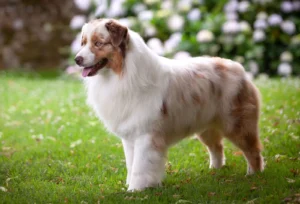
Australian Shepherds are smart and active. In active families, they thrive despite their high exercise and mental stimulation needs. Learn about Australian Shepherds:
- Intelligent: Australian Shepherds are smart and herding. They protect their family and are good with kids when socialized.
- Strong and Athletic: Despite their medium size, they are strong and agile.
- High Energy: High energy Australian Shepherds need daily exercise and mental challenges. They train agility and obedience well.
- Excellent Trainability: Their trainability is excellent, and they excel in dog sports. They need training to channel their intelligence and energy.
- Noise and Activity: Australian Shepherds are good with kids but may be sensitive to noise and chaos.
- Allergies: Australian Shepherds shed moderately, so allergic families may not like them.
- Cavalier King Charles Spaniel

Small to medium-sized Cavalier King Charles Spaniels are one of the best family dog breeds. Many call them “comforter spaniels” because of their loving nature. Here are some Cavalier King Charles Spaniel traits:
- Loving and Gentle: Cavalier King Charles Spaniels are very loving and gentle. Their loving and patient nature makes them good kids’ pets.
- Medium Size: Small to medium-sized breeds are easy to manage and fit into most family homes.
- Moderate Energy: They enjoy lounging and cuddling with family despite their moderate energy level. They like short walks and play.
- Trainable: These Spaniels are smart and eager to please, making training them easy. They like positive reinforcement.
- Noise Tolerant: Cavalier King Charles Spaniels are known for their adaptability to family life and tolerance for noise and activity.
- Allergies: Their silky, moderately long fur needs regular grooming. Although not hypoallergenic, their low shedding makes them suitable for mild allergy families.
FAQs
Why is dog breed selection important for families with children?
Families with children need to choose the best family dog breeds for harmony and safety. Not all dog breeds are good for families, especially with kids. The right breed can improve family and dog happiness.
How should I choose family friendly dog breeds for my family with kids?
Size, strength, temperament, energy, trainability, noise and activity tolerance, and allergies should be considered. These factors determine if the dog fits your family’s lifestyle and needs.
Does dog size and strength affect its suitability for families with children?
A dog’s size and strength can affect child and dog safety. Greater breeds may accidentally knock over small children, making smaller breeds easier to handle and less dangerous.
Are there family friendly dog breeds?
There are some family friendly dog breeds. Friendly, patient, and tolerant, these breeds make great kids’ pets. Example: Golden and Labrador Retrievers.
How can I match a dog’s energy to my family style?
Consider a dog’s exercise and mental stimulation needs when matching its energy level to your family’s lifestyle. Families with a slower pace or busy schedules should choose low-energy breeds.
Why is dog trainability important for families with kids?
Dogs’ trainability affects how well they follow the rules and behave around kids. Highly trainable breeds are easier to manage and fit into families.
How can I make a dog family-friendly to noise and activity?
Early socialization, exposure to children and different situations, and consistent training help dogs tolerate noise and activity in the family. These steps help dogs adjust to boisterous households with kids.
How should allergy-prone families choose a dog breed?
Hypoallergenic or low-shedding dog breeds are good for allergy sufferers. These breeds produce fewer allergens and cause fewer allergies. Individual allergies vary, so spend time with a dog of the chosen breed before bringing it home.
Name the family friendly dog breeds
Golden Retrievers, Labrador Retrievers, Beagles, Bulldogs, Poodles, Bichon Frises, Boxers, Shih Tzus, Australian Shepherds, and Cavalier King Charles Spaniels are dog breeds for families with kids.
How can I choose dog breeds for families with kids?
Research each breed’s traits, talk to breeders or rescue groups, and meet potential dogs to see if they fit your family’s lifestyle and needs.
Conclusion
Consider size, temperament, energy level, trainability, noise and activity tolerance, and allergies when choosing a dog breed for your family. This guide offers a variety of breeds for families with children, each with its traits.
The right dog breed for your family depends on your lifestyle, preferences, and needs. Finding the right breeder or rescue group for your family requires research and meetings. Proper training, socialization, and responsible ownership are essential for a happy family-pet relationship, regardless of breed. Remember that with love, care, and attention, your dog can be a family member for years.


